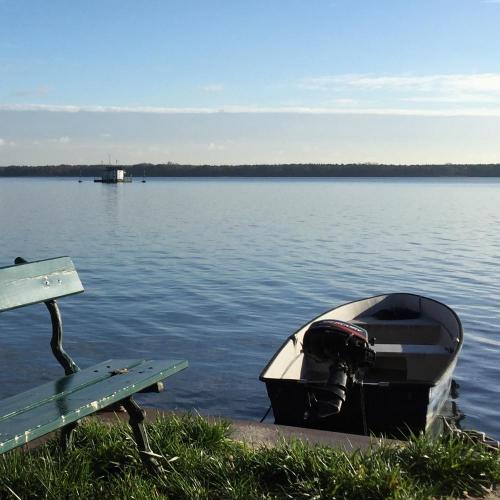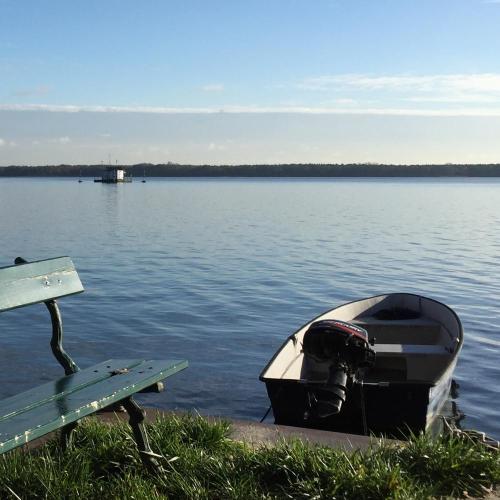
Fish Parasitology and Immunology

Group profile
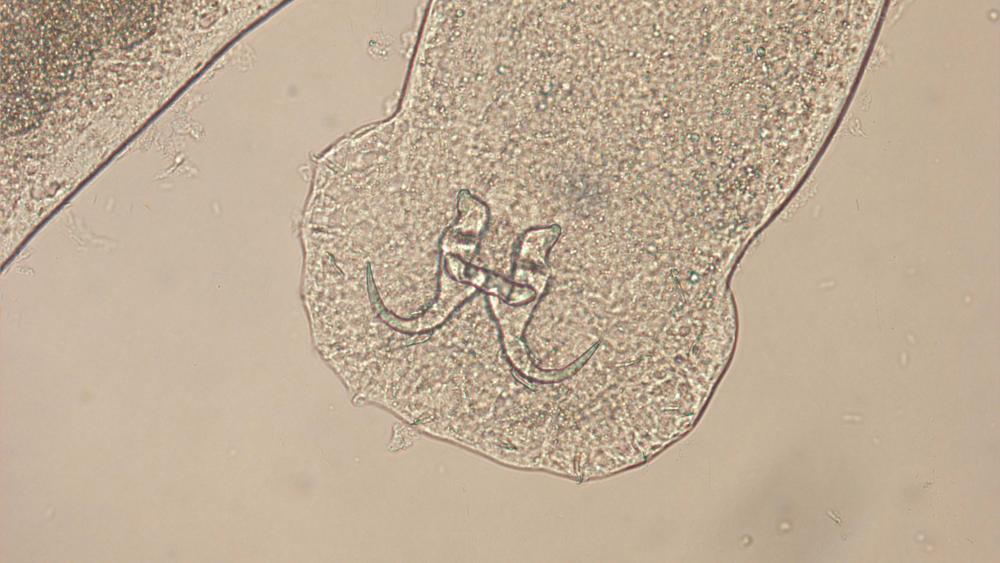
Pseudodactylogyrus bini, a gill parasite of eels. | Photo: Klaus Knopf / IGB
The control of diseases and parasites in aquaculture is essential to meet the requirements of animal welfare and economic production. That's why we are dealing with new, alternative ways to control pathogens and keep fish healthy.
Parasites are not only dangerous pathogens in captive fish. Introduced parasites from other continents may pose a serious threat to non-adapted endemic fish species. One of these alien parasites is the eel swim bladder nematode Anguillicola crassus. We focus on understanding how the immune system of our native eel species deals with this new parasite.
Endemic parasites, however, are found in a fascinating variety in wild fish, where they rarely attract attention as pathogens. They are integral parts of aquatic communities. Many fish parasites have complex life cycles that involve several hosts at different trophic levels, and much remains to be explored about their function in the ecosystem. We are interested to learn how these parasites could alter the role of their hosts in the aquatic food web.
Furthermore, we are using our experience in the determination of stress and immune parameters to obtain measurable evidence for the welfare of captive fish. It is our goal to provide scientific data on how to improve the husbandry conditions for fish in captivity.
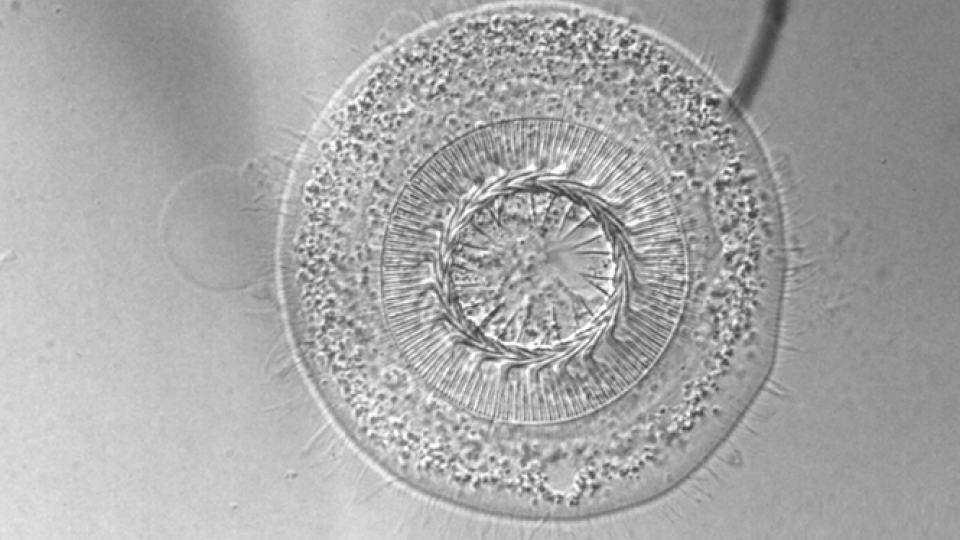
Ciliates of the genus Trichodina are ectoparasites on fish. | Photo: Klaus Knopf / IGB
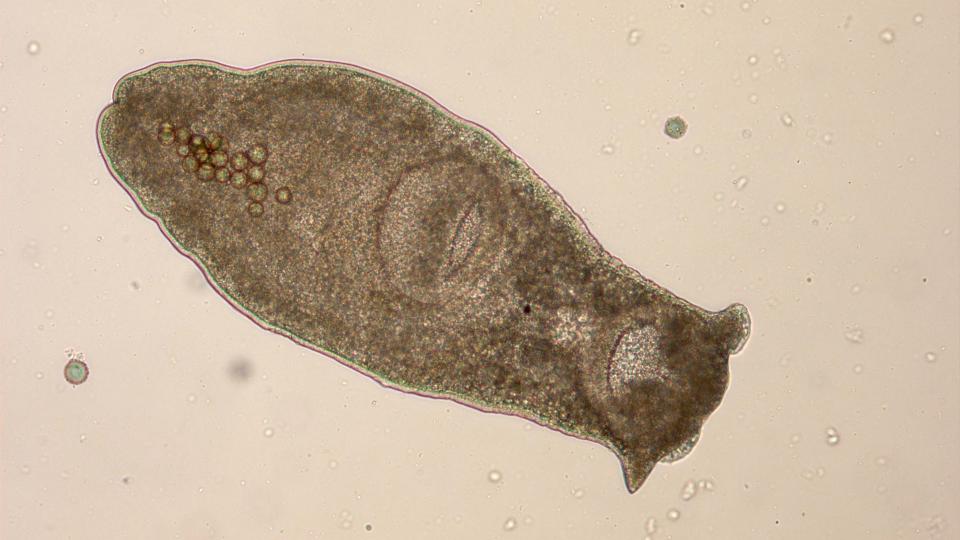
Bunodera luciopercae from the intestine of perch. | Photo: Klaus Knopf / IGB
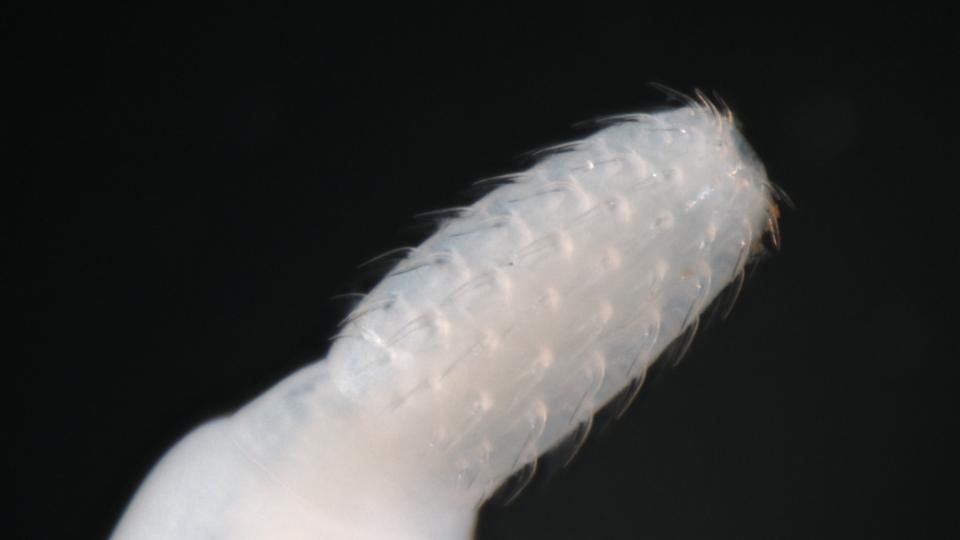
Proboscis of the Acanthocephalus lucii from the intestine of perch. | Photo: Jürgen Schreiber
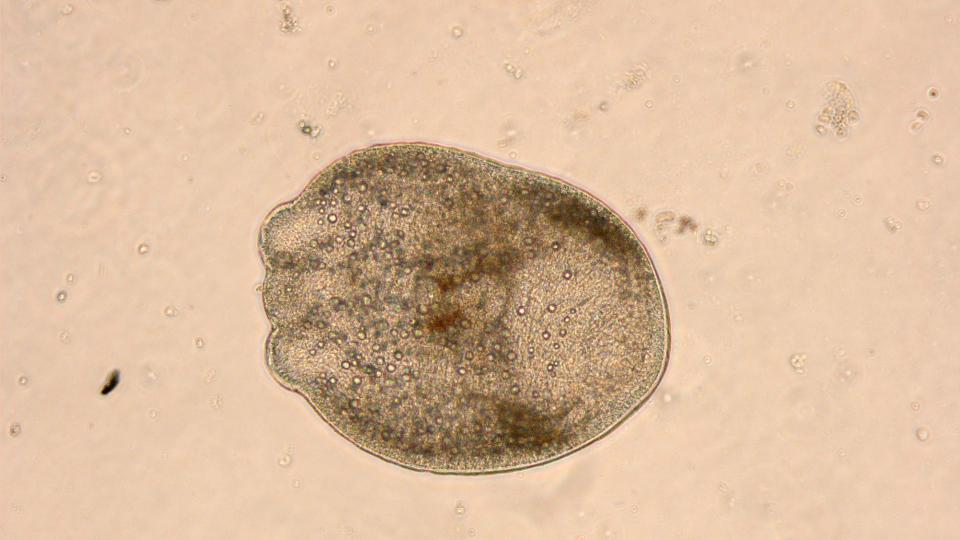
Metacercaria of Diplostomum from the eye lens of perch. | Photo: Klaus Knopf / IGB
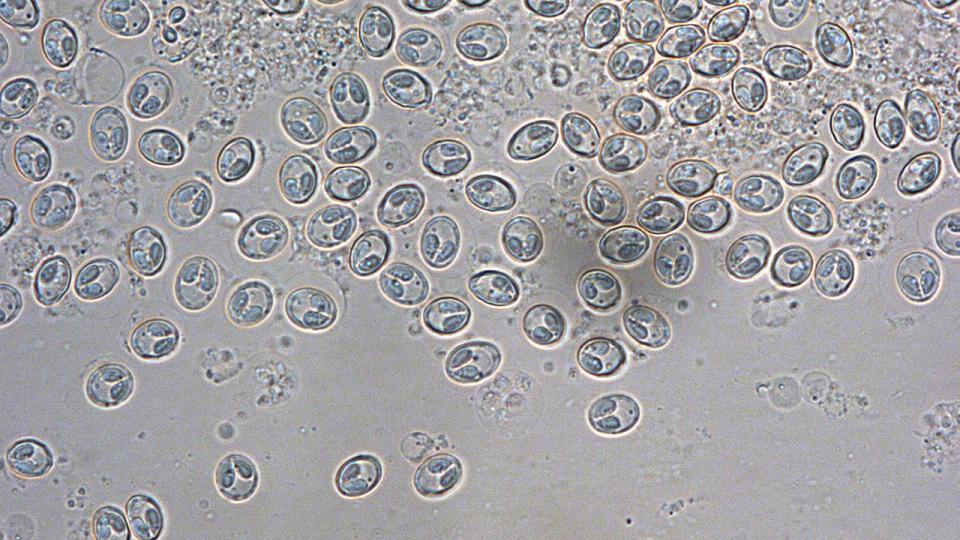
Spores of Myxobolus portucalensis from a European eel. | Photo: Klaus Knopf / IGB
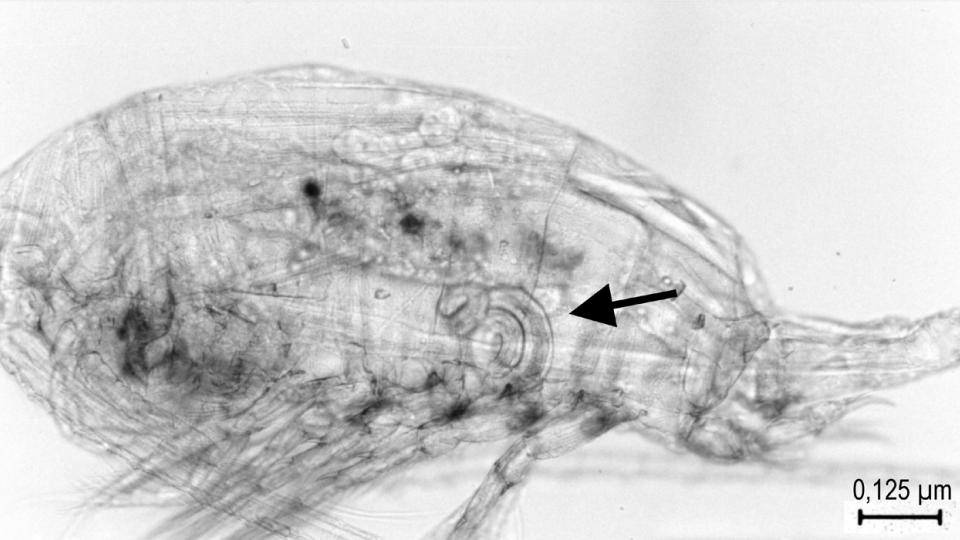
Anguillicola crassus larva in the body cavity of a copepod. | Photo: Jürgen Würtz



